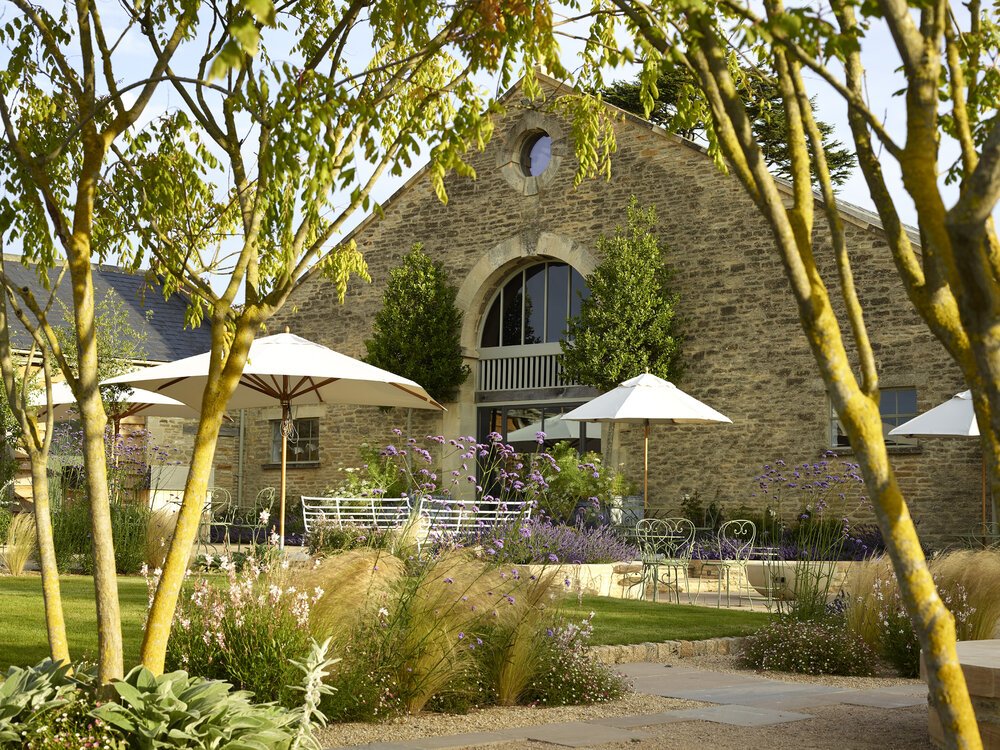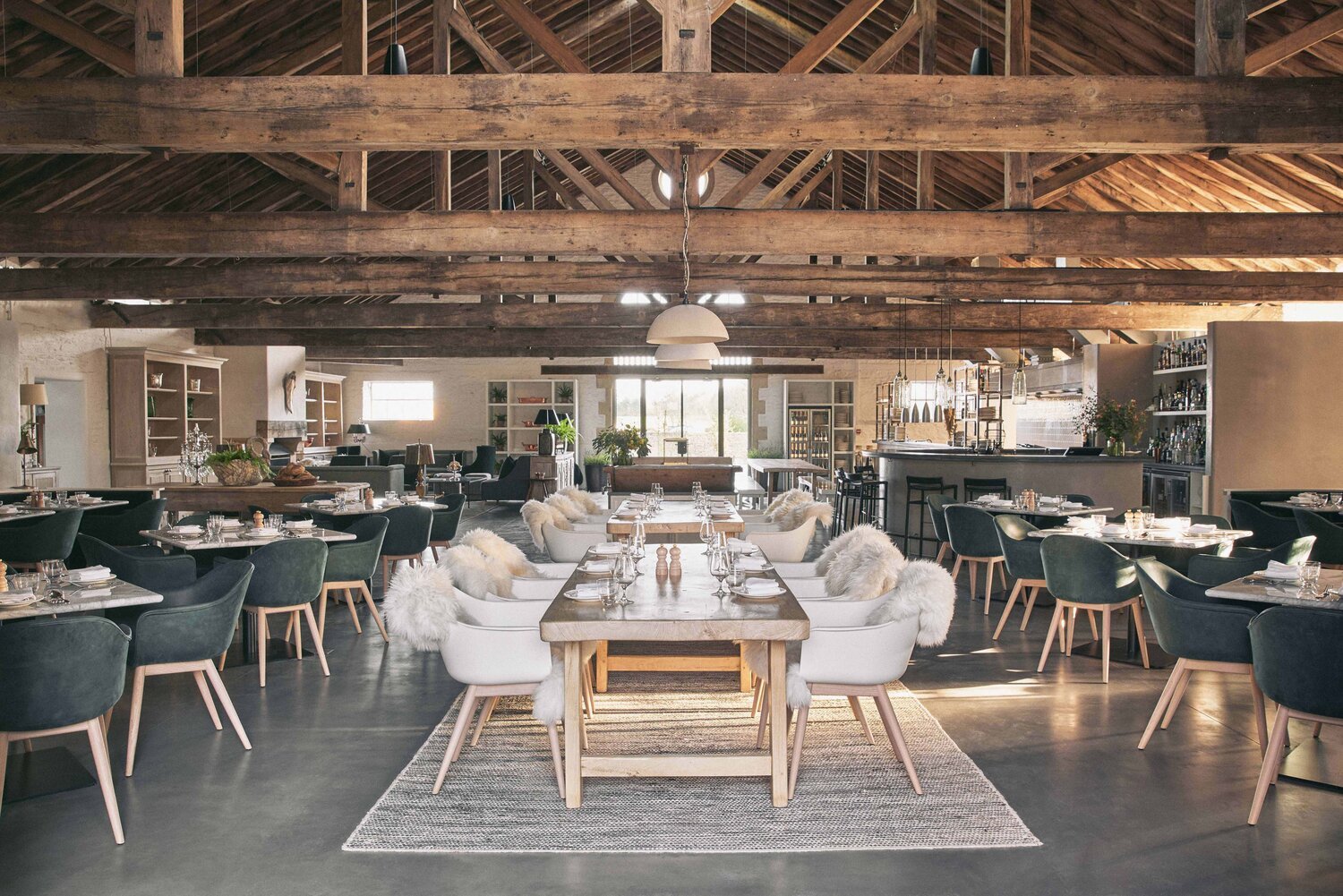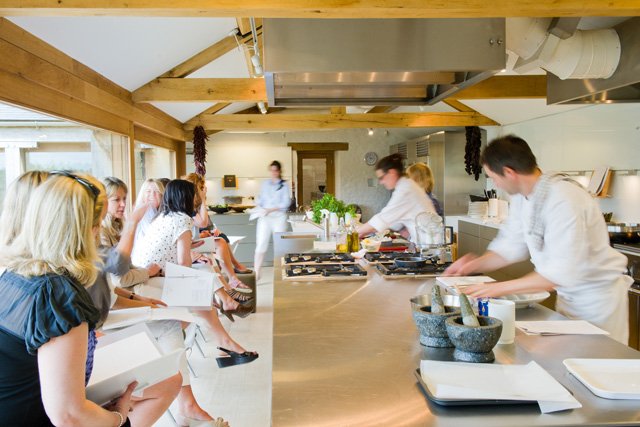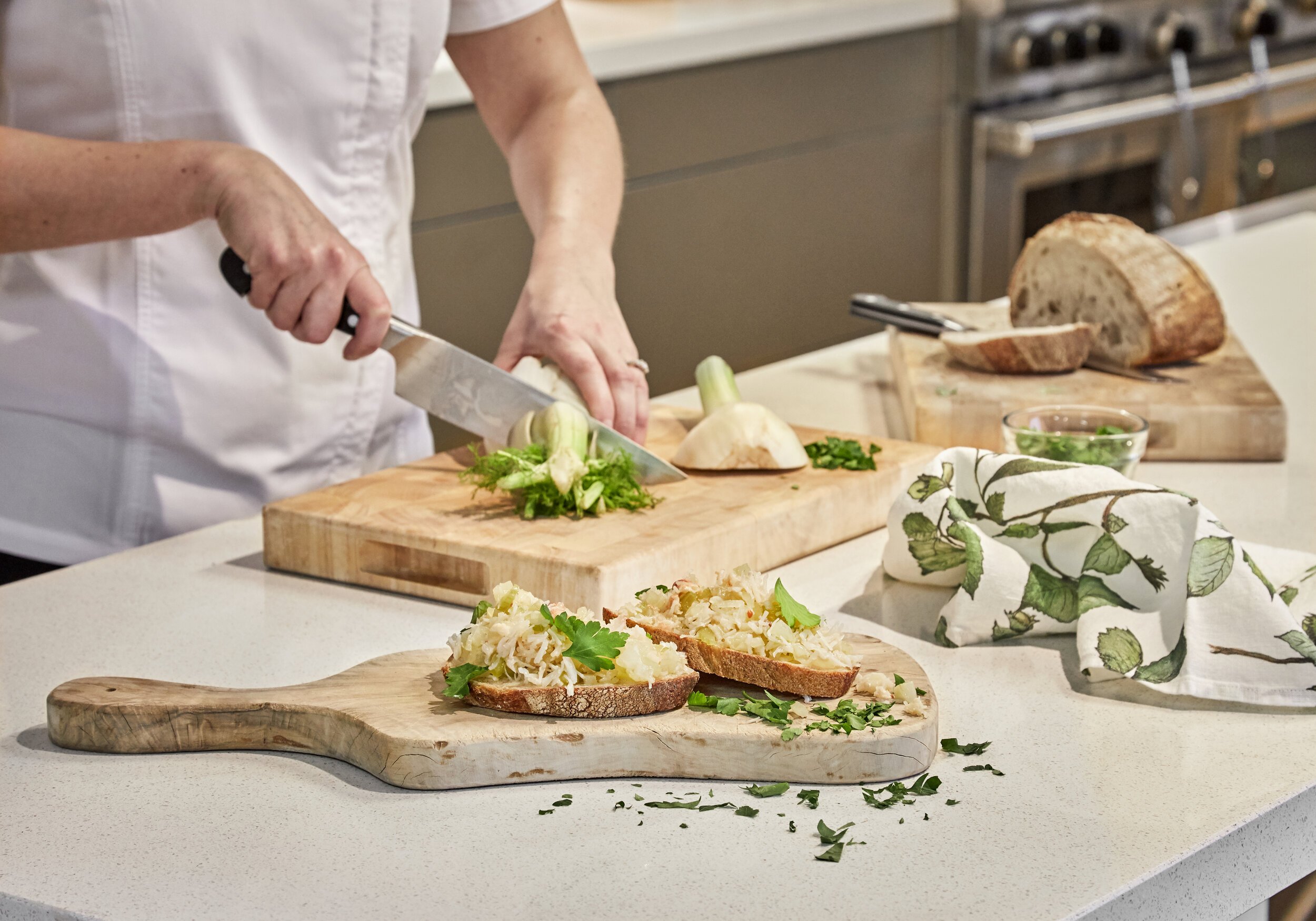PEOPLE
Caryn Hibbert: The woman behind the 150 acre bucolic paradise
BY ARCHIE CAWTHRA & CARYN HIBBERT
We were lucky enough to spend the afternoon at Thyme with Caryn Hibbert (the founder and owner) where she gave us a tour around the stunning estate and also told us the story behind the business.
How did Thyme start?
“Thyme originally started as a cookery school because these were very listed buildings, they were completely derelict buildings, in fact I think I have some images”.
Here are the images Caryn showed up, completely different to the luxury hotel it is today.
Before the renovation
After the renovation
“We had very strict planning rules and regulations on how we were allowed and what we were allowed to do. We bought the house and then moved out of London and all the other buildings were purchased about a year later, it was actually my father who bought the buildings because we couldn’t afford to buy them all at the time. The reason we bought them is because my father wanted a restoration project. We bought the barns with planning permission to turn them into houses (which was very unpopular) and as they were part of the orginal estate we wanted to reunite them with the manor and restore them with new working purpose.
We bought them very quickly without having much time to think about it and then we sort of sat there and thought ‘Well, what are we going to do with them?’” Caryn laughed.
So what did you end up doing with them?
“To start with we decided to treat them as four different buildings and because they were so big we did offices in one, we did stables in the now Ox Barn, we had the little cottages and we did the cookery school in the barn. It was important for us that the barns stayed as big spaces, not splitting them into smaller rooms and that they continued to work with the land. The last building was the tithe barn, I love cooking and entertaining so we decided to open a cookery school. There was so much interest in food and cooking and as we also owned the village pub, we thought that would work well together, along with our then chef Bob Parkinson.”
What was most important to you?
“The most important part for me is that there was a connection with the land, it’s always been the ethos and I think through that journey I’ve learnt a lot because it was at the beginning of people being interested in where their food came from. At the time people were so separated with nature and where their food came from. Since living in the Cotswolds my passion has been wild spaces, wellness, plants, botanicals and actually growing our own food. All those lovely things that I’m so passionate about is what Thyme has come to be. Growing your own food is such a fantastic thing and eating seasonally makes the produce taste so much better, I only tend to have strawberries in June as it is when they are at their very best, they don’t taste nearly as nice at other times of the year”
How did the cookery school go?
“It was very enjoyable running the cookery school and we still run it to this day. My favourite thing was getting the people to go down and pick their vegetables and pick up potatoes. I remember people coming that never dug out potatoes before, they didn’t know the first thing about it! Everything we’ve done is about reconnecting people to the land from where the food is grown to also nature we have here. A couple of years ago nobody was too bothered about coming to the countryside, but now everyone wants to!”
What do you love about the Cotswolds?
“I mean what isn’t there to love about the Cotswolds! We have a range of fantastic pubs and local businesses. We also have villages and countryside that you couldn’t get anywhere else in the world, you could always go on holiday to places like the Maldives, Bali and the Bahamas but I truly think there is nothing more beautiful than a quintessential English village. One thing I love about England in general is the four distinct seasons, every season is very different. My favourite season is Spring and Autumn, I love Spring because everything is growing and you also get lots of new life with lambs, calfs and so much more. And I love Autumn because all the fruits, the harvest, it’s a lovely time when all the colours start changing. The Cotswolds in my opinion is most stunning in Autumn.”
What made you move to the country?
“I wanted to be a homemaker and I wanted to be a mummy, I wanted to bring my children up in the countryside so we moved into Southrop Manor when my oldest was about 10. Southrop Manor had all these deserted farm buildings and that was really when we thought, what are we going to do with them? I started the restoration project with my father who was an engineer and he wanted a project, he was dying to experiment with different sorts of heating systems and make the buildings eco buildings but also working buildings. So he said to me, ‘I’ll restore them and I want you to do a business’. That was sort of the beginning of Thyme, it’s been a very long journey and the growth of Thyme has very much been an organic one. I certainly didn’t start thinking we’d have what we now have which I think is pretty fabulous!”
Where do you see Thyme in 20 years?
“In 20 years, I hopefully still see Thyme as the relaxing hotel it is now and everyone can still come to relax and connect with nature. In terms of Bertioli (Thyme’s lifestyle brand), I see Bertioli being a lifestyle brand recognised worldwide.”
Thyme cookery school today
Images of Bertioli products
Why do you think people love visiting Thyme so much?
”We are of course very lucky to have such beautiful buildings in such a wonderful landscape, but most importantly of all it is the Thyme team that make this a special place. We try so hard to make sure that people are welcomed and looked after from the moment they arrive to the moment they leave.”
What is your favourite part of Thyme?
“This is a tough one as I think it is the combination of all the different elements that makes Thyme special; the delicious food, the service, the super comfy rooms, the spa, the farm and gardens and of course, the boutique, all in buildings steeped in history. For me, however it is our connection with the land that makes Thyme special, so if I had to say one place it would be the farm and gardens.”
To find out more about Thyme, read our article by clicking here.







